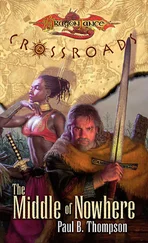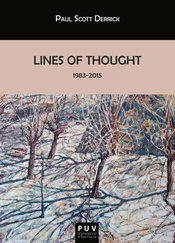Paulo Scott - Nowhere People
Здесь есть возможность читать онлайн «Paulo Scott - Nowhere People» весь текст электронной книги совершенно бесплатно (целиком полную версию без сокращений). В некоторых случаях можно слушать аудио, скачать через торрент в формате fb2 и присутствует краткое содержание. Год выпуска: 2014, Издательство: And Other Stories Publishing, Жанр: Современная проза, на английском языке. Описание произведения, (предисловие) а так же отзывы посетителей доступны на портале библиотеки ЛибКат.
- Название:Nowhere People
- Автор:
- Издательство:And Other Stories Publishing
- Жанр:
- Год:2014
- ISBN:нет данных
- Рейтинг книги:3 / 5. Голосов: 1
-
Избранное:Добавить в избранное
- Отзывы:
-
Ваша оценка:
- 60
- 1
- 2
- 3
- 4
- 5
Nowhere People: краткое содержание, описание и аннотация
Предлагаем к чтению аннотацию, описание, краткое содержание или предисловие (зависит от того, что написал сам автор книги «Nowhere People»). Если вы не нашли необходимую информацию о книге — напишите в комментариях, мы постараемся отыскать её.
Driving home, law student Paulo passes a figure at the side of the road. The indigenous girl stands in the heavy rain, as if waiting for something. Paulo gives her a lift to her family’s roadside camp.
With sudden shifts in the characters’ lives, this novel takes in the whole story: telling of love, loss and family, it spans the worlds of São Paulo’s rich kids and dispossessed Guarani Indians along Brazil’s highways. One man escapes into an immigrant squatter’s life in London, while another’s performance activism leads to unexpected fame on Youtube.
Written from the gut, it is a raw and passionate classic in the making, about our need for a home.
Nowhere People — читать онлайн бесплатно полную книгу (весь текст) целиком
Ниже представлен текст книги, разбитый по страницам. Система сохранения места последней прочитанной страницы, позволяет с удобством читать онлайн бесплатно книгу «Nowhere People», без необходимости каждый раз заново искать на чём Вы остановились. Поставьте закладку, и сможете в любой момент перейти на страницу, на которой закончили чтение.
Интервал:
Закладка:
Thirteen years old. Usually he sits all the way over to the right, at the fourth desk from the front. He spends the twenty-five minutes of his break almost always in the same way. The final destination is the library. The itinerary is simple: the bell rings, he waits a minute till most of the class have left, he takes the CD player Henrique gave him out of his rucksack, he always brings a pearl from his collection of more than a thousand discs that are kept in his living room (today he has brought Surfer Rosa by some guys called Pixies, a pretty old band who inspired Nirvana, the supreme rulers of the universe). Then he takes his regular walk around the playground under the covered walkways. He will spend a minute or two with the groups of boys, always small groups, with whom he gets along; one of these groups is made up of Américo, Ramon and Julián, this latter a Bolivian, pale and feeble, with grey-blue eyes, a potential candidate for his best friend. He doesn’t waste more than five minutes on this circuit, for the time being he moves on to his small daily dose of obsession moment: tracking down Rener wherever she is, even if it’s just for a glance and a wave from afar. Since last year they’ve been in different classes, it’s one of the school’s strategies, to mix up the classes in order to increase the students’ sociability . This time he didn’t need to look for her. She runs over with a CD to give him, it’s Serge Gainsbourg’s Love on the Beat , she says this is who he should be spending his time on and not with the Nine Inch Nails of this world (he doesn’t even like Nine Inch Nails). Donato looks at her gratefully, puts the CD in his jacket pocket, asks whether she might want to go with him to the library, she laughs and says that if she ever chooses to trade her break on a sunny day for the library he should have her locked up in a madhouse, she gives him a kiss on the cheek and returns to her circle of girlfriends. Donato walks, then, to the start of the corridor that leads out of the school, turns left and walks on to the library. This is his refuge. Saying hello to the two women working at the counter and the head librarian is his refuge, mixing up the names on the spines of the books is his refuge, thinking that he understands the poems by Brazilian writers is his refuge, that he understands Walt Whitman and Camões, who are not well served in the classroom, is his refuge. Refuge. Here he has the sensation that he is not wasting time and (squeezed together in the corridors with the other students, the interested ones and the ones who most probably have just adopted a strategy of invisibility like his) he also has the sensation of possessing some kind of autobiographical authority. Here he doesn’t need to submit himself to trials of strength, charisma, leadership, shrewdness, humour, popularity, here he doesn’t need to discover how much he resembles his classmates, the future leaders of their countries, here in the impersonality of the iron shelves and the silence that has seeped into the rest of the furniture, he spends the only minutes in which he allows himself to feel afraid.
Luisa said it would be a complete waste of time going up the Pão de Açucar on a cloudy day like this one in Rio de Janeiro. Donato knows she’s taking unfair advantage of her right to reorganise the outing agreed by the three of them. Her threadbare excuse is her perpetual migraine, she says she woke up at five and didn’t go back to sleep. The reason, looking at the situation objectively, is solely and exclusively the fact of Henrique having been called in as a last-minute replacement for a Mexican analyst at a think tank in Teresópolis, a private meeting to come up with public policy suggestions organised by a group of young businessmen from Minas and Rio (the money’s good, in the financial crisis he is going through there was no way he could say no) and, because of this, he is prevented from returning before Thursday, that is, three days from now. Now the itinerary is up to her. Donato doesn’t want to think about this too much, he has a map, he knows which buses he needs to take. He never puts himself on a collision course with Luisa, he just ducks, weaves, leaves little notes. In spite of the occasional embarrassments caused by his stutter, he considers himself at a great advantage to the rest of the social universe: he is better informed than most of the adults around him and entirely confident as regards his inability to make mistakes caused by absent-mindedness, an excess of pride, resentment or vanity. He leaves a note at the hotel reception, takes the circular-route bus at Leblon towards Gávea, Jardim Botânico, Humaitá, Botafogo. He gets off at Voluntários da Pátria, the main street in Botafogo, walks to Rua das Palmeiras, to the big house numbered fifty-five. He goes in. He walks around the courtyard, there’s a stylised thatched hut that has been set up right near the entrance on the left of the main building, he spots the class of children aged around nine who are probably starting one of those guided tours and joins the group. The teacher, a really young redhead, looks at Donato, says nothing. They go into a hall with an exhibition of ceramic objects, pieces representing Asurani art made by the people of that name who live in Médio Xingu, about a hundred kilometres from the city of Altamira in the state of Pará. The guide’s little jokes make up for his weak presentation, rather unconvincing and lacking relevant information even for a gang of students from any old municipal public school. All is going well until the teacher emphatically states that the greatest mistake made by the white man was to remove the Indian from his habitat and because of this ‘we all have to fight for Indians to return to their natural state, living in harmony with nature … ’ Before she has finished, Donato raises his hand. This throws her, there’s a moment of doubt (you can see it in her eyes) and she gestures to him that he may speak. He says that she is wrong, it would be best to take every last savage they can find in the forest and civilise him, give him a real chance to ‘ensure his dignity in today’s world without needing favours from anyone, before the process of decimation has been completed.’ He concludes by saying that the past will never come back. The teacher is stunned; two students immediately ask ‘miss, what’s decimation?’, and, fortunately, the guide launches into one of his comedy routines and Donato goes off to explore other parts of the Museum of the Indian less propitious to his enthusiasm.
Another school year has passed. They are both fourteen (Rener is just three months his elder) and this meeting on the staircase that goes to the teachers’ car park has not been prearranged. Donato’s face is turned towards the alcove framed with very light quartz stones with a statue of Our Lady of Lourdes in one of the far corners and is still stunned at the news that Rener will be leaving Brazil in eighteen days’ time and, along with her parents, will be going back to live in France. Stop being such a hick, Curumim. You’ll learn to get by on your own, she says. He turns his face towards her. I know how to get by, Rener. It’s just, I … I kind of … I’m going to miss you, I’m really going to miss you a lot. She responds with a melancholy smile. This whole time we’ve balanced each other out, haven’t we? He nods. You’ve helped me not to become the school’s walking freak show. She looks grateful. And you’ve given me grief to keep me from becoming the local Naomi Campbell, she says, her lips quivering. Exactly, he says. Rener’s eyes fill with water. Don’t worry, I’ll be all right … There’s only two more years. They both know two years is too long. But pay attention, Donato, drying the tears that are flowing down her cheeks, it’s time for you to learn how to play the game better. He frowns. Better than I play now, Brown Sugar? I’m a complete goody-goody, I always do everything just right. She gives his shoulder a gentle shove. That’s not what I’m talking about. Being like that is only going to open doors for you in the future, she says. So what are you talking about, then? She looks down. About how blind you are to things that are going on around you … your naivety, your passivity, your … leaning her elbow on her knees and clasping her hands together in front of her. Leaving this school, getting far away from you, it’s going to be a relief. I’m sorry to be telling you … almost in a whisper. But what … he tries to interrupt her. She doesn’t let him. I’m sorry to be telling you like this. Really, I’m just sad and I’m taking it out on you … still in a low voice. Rener, Rener, Rener … She lifts her head and looks at him. Look, Curumim … Since the first day of pre-school I’ve liked you … And that feeling of affection has taken so many different shapes, in so many ways, that sometimes I’ve doubted whether it really exists. Even my girlfriends … I swear on my life, I never told anybody a thing … even they know I’ve always liked you … and they know I’ve always protected you … Or do you think you escaped from being one of the school punchbags because you’ve got nice eyes? Hmph! Anyone messing with you would have to mess with me … You even called me Mônica for a bit, like in the comics, remember? she says. I used to get furious, didn’t I? He agrees. And she gives him another gentle shove. How many times did I make English Douglas ask you to play football with them at break time … I’d even insist that you had to play up front, never in goal. Donato considers telling her about the poems he wrote for her, but instead says: the older guys always did like you. There are at least twenty poems. See what comes from being the school skating champion … He memorised one in which he calls her Dino. I always suspected as much, Rener. I mean, you pulling the strings. Hiding in the shadows. Poems don’t belong in the world of Rener. Women know how to do that kind of thing. I confess it was really fun, the cretins in our year respected me not only because I was, let’s put it this way, irresistible, but also because the guys in the years above did whatever I told them, including intimidating, with all the subtlety of a builder’s mallet, any younger ones who stepped out of line. Ah, my Parisian blood … It’s not my fault that’s what I’m like. And what do you feel now? About the cretins? A dinosaur within a poem. Please, Sugar, don’t start … Hardly anything has changed … Everything has changed … You know … I’ve gone out with Mark, and Gabriel, I’ve fooled around with two other guys … I’ve never kissed anyone, he admits. Really? … Why am I not surprised? And he moves forward (three spaces at once). I like you, Rener, really like you. This year was hard, loads of things I hadn’t had to deal with before became important and I discovered I had no idea how to handle them. You live to study, she says. Isn’t that what we’re here for? I still don’t know for sure … Now I’m going back to France and I’m going to have to start from scratch … I know I won’t adapt … And he surprises her: I love you, Brown Sugar … Since when? Donato doesn’t reply, he can’t be as frank as she is. Three or four minutes pass without either of them saying a single word. A group of their classmates is walking towards them, approaching casually; after all Rener and Donato are like two sides of the same coin. Rener notices and gets up to meet them. Donato stays where he is, he knows Rener will take the group far away, because that is her way of protecting him and, right now, of torturing him for what he’s done, too. He knows that he will need to find some new reasons for being in this school. He should have kissed her. He should have stopped her getting up.
Читать дальшеИнтервал:
Закладка:
Похожие книги на «Nowhere People»
Представляем Вашему вниманию похожие книги на «Nowhere People» списком для выбора. Мы отобрали схожую по названию и смыслу литературу в надежде предоставить читателям больше вариантов отыскать новые, интересные, ещё непрочитанные произведения.
Обсуждение, отзывы о книге «Nowhere People» и просто собственные мнения читателей. Оставьте ваши комментарии, напишите, что Вы думаете о произведении, его смысле или главных героях. Укажите что конкретно понравилось, а что нет, и почему Вы так считаете.












